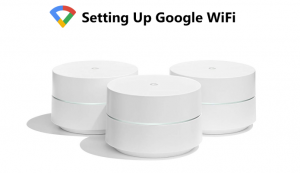The average internet connection speed has shot up by more than 500% in just 10 years. Its availability has seen equally impressive growth. As a result, internet use has surged, to the point where many can no longer even imagine life without it.
But all this internet use has led to another unexpected consequence: a massive digital data trail. It keeps accumulating each day as you interact online, and sometimes even when you are offline. And with a search engine giant like Google collating all your online data in an instant, maintaining privacy might now seem a distant reality.
Understanding your data legacy and risks of digital data
The amount of personal information Google displays on its search engine result pages (SERPs) depends on each internet user. Some may have just a few SERPs worth of content, while those with an active online life could have amassed tens or hundreds of result pages.
But whatever the scale of the data legacy, the risks remain the same for everyone. Having personal information displayed in public on a search engine like Google is an easy way to invite trouble. For example, you can attract cybercriminals and face identity theft or get entangled in financial fraud. Haters could target you for doxxing or extortion, and marketers could harass you with spam and robocalls. You can even get stalked or bullied. And the list goes on.
Now, this doesn’t mean you should wipe out any trace of personal data from the search engine. It’s first important to understand why and what you want to remove. Are you looking to delete content that could damage your reputation? Have you experienced doxxing and, as a result, worried about personal safety? Or do you want to improve overall online privacy? The answers may depend on individual circumstances and personal risk tolerance levels.
Once you are clear about the specific reasons, you can next look at how to remove info from google search and keep your data off its result pages in the long haul.
5 Tips to remove personal data from Google SERPs
There are several ways to clean up your personal information from Google’s search result pages. Here are the most effective steps.
1. Remove shared data
You may be sharing identifiable data with Google in various unintended ways. Social media, personal blogs, forums, and websites are the most obvious sources. But they are also the easiest to remove since deleting content shared on them is often within your control.
Account privacy is another essential factor. Ensure that all your online accounts are in private mode and their content is only visible to those intended. Some platforms like LinkedIn even provide options to keep your profile hidden from Google.
Also, turn off data collecting and sharing permissions to prevent further data intrusions. And when it comes to accounts that you rarely use, consider deleting or deactivating them. It could help minimize opportunities for unnecessary data sharing.
2. Tackle third-party data gatherers and publishers
Now, you might also find personal content on sites that are not directly accessible to you. These can include news websites, data aggregators, and content curators like business information sites.
In such instances, reach out to the publishers with an email or a contact form. Then, be prepared to follow up with a few more messages. Getting content removed from these sites will usually take more effort. But deleting content from the source is the most effective way to prevent it from appearing on Google.
3. Submit a Google request
A direct request to Google is another option, provided you meet their data removal criteria. For example, you can reach out to the search engine if you are worried that your financial data appearing on a third-party site could make you a target for a financial scam.
Google lists a range of instances when it would intervene and help users by removing content from its SERPs. But remember that your data will only disappear from its search results and not from the website that has published the content.
The Google Search Help page provides more information on the exact process you need to follow.
4. Hire a data removal service
For anyone with a substantial amount of digital data, removing it one by one and following up with each website might be a tedious process to handle on their own. A data removal service could be the best solution in such circumstances. These service providers specialize in digital data removal and can take on the entire responsibility of cleaning up your data footprint.
Of course, their services come at a fee. So, evaluate the specifics of their data removal packages before taking out your credit card. For instance, consider the type of data publishers and the number of websites they’ll reach out to on your behalf. Some will even offer continuous monitoring over an agreed period, usually a year.
5. Set up a VPN on your router
A VPN has several advantages. While it will not help remove your personal information, it will certainly allow you to encrypt your data and protect your privacy. This is essential to prevent hackers and other intruders from accessing your identifiable data, which might later turn up on Google SERPs.
And if you are using several devices at home, setting up a VPN on your router could be the perfect solution for a safe online experience.
Wrapping up
Removing personal data from Google SERPs is essential for anyone looking to strengthen privacy and eliminate unnecessary threats to safety. But keep in mind that deleting data from Google could be time-consuming and may not always be easy. Besides, it would often require constant work since each online interaction adds even more data to cyberspace.
So, effectively managing your online activities and being extra vigilant about what you share is equally critical to assure digital safety and privacy in the long run.







